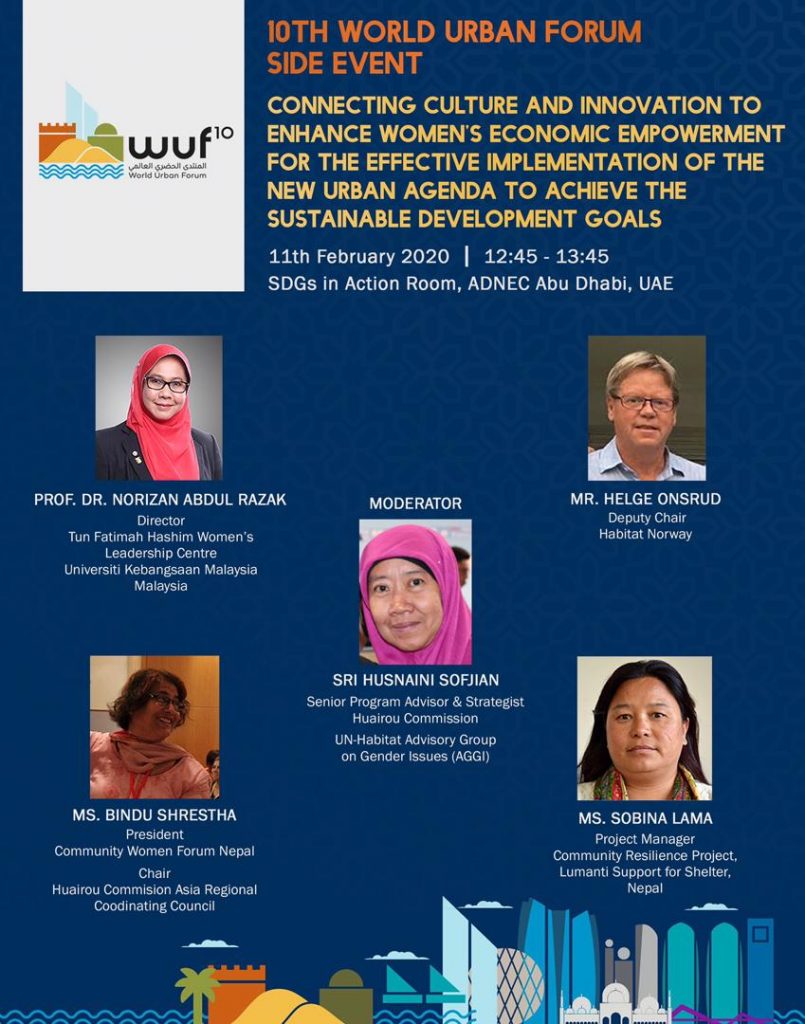World Urban Forum X, side event on Connecting culture and innovation to enhance women’s economic empowerment for the effective implementation of the New Urban Agenda to achieve the Sustainable Development Goals
Abu Dhabi, 11.02.2020
On behalf of Habitat Norway, Helge Onsrud made the following presentation about women’s economic empowerment in Norway:
Improving women’s financial independence has mainly to do with women having access to paid jobs.
I checked the statistics this morning; In today’s Norway about 70 % of the population between 15 and 74 years are working in paid jobs – the same % for men and women. Women’s average incomes are lower, mainly because a larger portion of women occupy part time jobs and jobs which are less paid.
It was not achieved over night. Equal rights for women has been an organized struggle for more than 150 years. In 1913 women got full voting rights. It took many more years before women entered the labor market at the same level as men. My parents’ generation of women largely stayed at home after they married and got children – my mother included.
Traditions and culture were the main obstacles to women entering the labor market. Legislation was largely ahead of the common sentiment among people. Today all legal discrimination that affect women’s financial situation are removed. The last discriminating legislation to be removed was a very old provision that the oldest boy enjoyed a first right to inherit a farm undivided. It is a long-standing policy in Norway that farms should not be divided among heirs. The other heirs should be compensated financially. Now, the oldest child, regardless sex, enjoy that first right. Quite many girls use their right.

Norway has a general state pension scheme affecting all. Pension rights and retirement age is the same for men and women. The normal retirement age is 67, but people could retire earlier or later, with a corresponding effect to the annual pension amount.
Inheritance rights are equal for both sexes. That goes for all kind of property. Spouses enjoy chaired ownership to the family’s common dwelling and will normally get 50 % of the value in case of death or divorce, irrespective that the woman’s name is registered in the property register or not. A family dwelling cannot be sold or mortgaged without the consent of both the husband and wife. Both signatures have to been on the sales deed.
Enhancing women’s economic empowerment has taken place in parallel with the general economic development in Norway, with increasing demand for hands and brains in public and private sectors.
At the same time, the entering of women into the labor market has an enormous impact to the general economic development. Certainly, women’s work participation is a main reason to the economic status of Norway today – one of the richest country in the World counted per capita.
Women’s access to paid jobs has been supported by comparably generous social benefits to mothers and families. Without going into details, mothers are entitled to close to one year leave from work for each child, maintaining the full salary and with a right to reoccupy the job after the leave. The leave period can start up to 12 weeks before the delivery of a child.
During the last ten years, the number of kindergardens have been massively increased to cover the full demand. Women who decide to stay home with their child for one more year after the general leave period, until the child is 2 years old, will be financially compensated for not occupying a place in the kindergarten – a benefit, which however is politically disputed; Why pay somebody for not using a public service? Why should women be encouraged to stay home? Would it not be better that children in newly immigrated families go to kindergarten to learn Norwegian language than staying home with their mothers? Etc.
In spite of the social benefits, the fertility rate is now far below 2 %, and the population is shrinking. It would shrink dramatically without immigration. This has raised a discussion about making it easier for families to have more children, making it easier to combine working and childcare. Larger companies could be encouraged to run kindergartens on their premises. Women, and men as well, could enjoy shorter working days until their children are older.
Still, the financial situation of men and women and of their status in the labor market differ quite a bit. Men occupy most leadership positions, especially in private sector, and this is not changing very rapidly. It is changing more rapidly in public sector.
Since 2008 boards of stock based companies should have a minimum of 40 % of each sex. That is largely achieved, but still only 6 % of the board presidents are women.
There are also big differences when it comes to education. Girls tend to choose human oriented education, such as for school teachers, hospital nurses, social workers, etc. Very few girls choose to become a craftsman. However, it is really no reason why a girl should not become a plumber or an electrician or a carpenter. That would widely open up the labor market to girls, but it has not happened yet. Getting dirty hands, are still not associated with being feminine, I am afraid.
On the other hand, more than 60 % of master students in Norway are women, increasingly occupying jobs as medical doctors and lawyers, less becoming engineers.
I have been challenged to say a few words about information technology opening up new opportunities for women to get paid work, for example in a self employed job working from home. It has been a lot of talking about the potential of remote jobs using Internet to work from home. However, as I understand it, this has not happened at any big scale in Norway. It looks that most people prefer to go to a job where they can meet and interact with colleagues, at least when their children are safe in a kindergarten.
At the same time information on Internet and social media provides a lot of inspiration to female entrepreneurship and to building related networks.
Finally, in my country information technology provides for extremely easy registration of companies. When I retired from my job in the state mapping and cadaster agency at the end of last year, I decided to register a company with the ambition to do some consulting. The registration took me only 5 minutes and did not cost me a single cent. I am now the single owner and the single employee of the “Land and Address” company.
That could as well been a woman.



